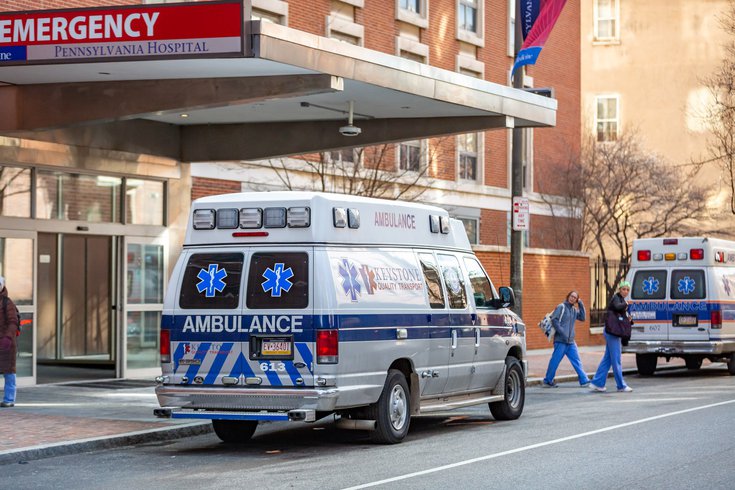
May 29, 2020
 Thom Carroll/PhillyVoice
Thom Carroll/PhillyVoice
The results of a survey conducted by the Society for Cardiovascular Angiography and Intervention highlight a growing concern among doctors – people are avoiding medical treatment because they fear visiting the hospital during the coronavirus pandemic.
Americans are far more fearful of heading to the hospital amid the coronavirus pandemic than they are of going to a hair salon or the beach.
Thirty-six percent of Americans view visiting the hospital as one the riskiest behaviors, according to a national survey conducted by the Society for Cardiovascular Angiography and Intervention. By contrast, only 27% perceive salons as risky and just 16% see the beach as dangerous.
The survey results highlight a growing concern among doctors – people are avoiding medical treatment because they are afraid to visit the hospital.
Sixty-one percent of Americans believe they are at least somewhat likely to get COVID-19 while at a hospital, the survey found. Half are more afraid of contracting the coronavirus than suffering a heart attack. And nearly 60% say they fear a loved one getting COVID-19 more than them having a heart attack or stroke.
These findings help explain the drop-off in cardiovascular patients that hospitals have experienced, doctors say.
Across the country, hospitals are reporting up to a 60% reduction in admissions for heart attacks, and a recent study also found a significant drop in the number of patients being treated for STEMI, a life-threatening cardiac event that occurs when there is a major blockage in the heart.
Additionally, the American College of Emergency Physicians has warned that emergency room visits are down by almost 50%. This trend is particularly alarming considering that people experiencing emergencies, like a heart attack or stroke, need prompt medical attention to have the best chance of recovery.
Cardiologists say heart disease is too prevalent in the U.S. to be ignored amid the pandemic. Someone in the U.S. has a stroke approximately every 40 seconds and heart disease remains the top cause of death.
"The data that we are seeing from this survey is not just disturbing, it is a clear sign that Americans may be in for a dangerous third wave of complications, and even fatalities, from delaying cardiac care during the time of this pandemic," Dr. Cindy Grines, president and chief scientific officer of Northside Cardiovascular Institute in Atlanta said in a statement.
"While there is still much we don't know about COVID-19, we do know that when it comes to heart attacks or strokes, getting to the hospital quickly and receiving immediate care is the only safe course of action. Time to treatment helps ensure the best possible patient outcomes."
Health systems in the Philadelphia region also have reported reductions in emergency department volume. But administrators stress that they are taking numerous precautions to prevent the spread of COVID-19. They have implemented temperature checks, mask mandates and social distancing requirements in waiting and exam rooms.
The Society for Cardiovascular Angiography has created the Seconds Count Campaign to help reassure people that hospitals have safeguards in place to protect them against COVID-19. It also aims to remind people that every second counts during a cardiac emergency.
Doctors urge people not to ignore the signs of a heart attack or stroke.
Heart attack symptoms include shortness of breath and an uncomfortable pressure or pain in the chest, arms, back, neck, jaw or stomach. Some people may experience heartburn, nausea or vomiting. Stroke symptoms include face drooping, arm weakness and speech difficulty. A delay in treatment could lead to serious complications or death.
The Society for Cardiovascular Angiography and Interventions Seconds Still Count survey included a nationally representative sample of 1,068 Americans over the age of 30.